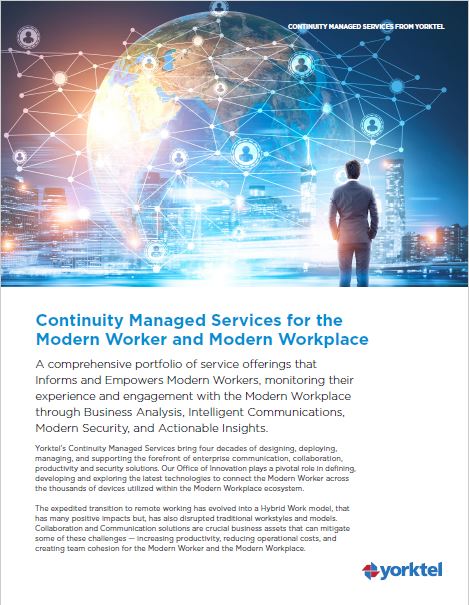Whether your enterprise is seeking a managed service provider (MSP) for the first time or you’re in the midst of an audit of your current partner and the benefits they provide, there are certain questions that you must ask. We’ll outline what to look for in a managed service provider and what you need to ask potential partners.
What to Look for in a Managed Service Provider
An MSP delivers a way for you to know everything that happens within your company’s tech stack, which would be impossible without a massive IT team or advanced automated monitoring tools.
But a great MSP should do far more than help monitor current problems and implement internal plans. It should leverage its team’s specialized expertise toward other solutions for data protection. These managed services solutions include backups, disaster recovery, future plans, and more.
Another key thing an MSP should help you build an enterprise monitoring strategy with real-time monitoring solutions that track and protect every aspect of your company’s internal infrastructure.
So before your enterprise commits, ask your provider about these 6 topics:
1. Availability
Even if your enterprise doesn’t operate 24/7, your computer systems do. Hackers and cybercriminals exist across all time zones. They can attack at any time and won’t be polite and wait for normal business hours.
Internal problems are no different. Crashes, glitches, and outages can happen at any time.
When you review managed service provider support solutions, you must ask how they monitor your systems for problems, especially when they don’t have people in the office.
2. Service and Response Time
Next, it’s time to ask how they act in the moments after an alert. An MSP that detects a problem and begins a response proactively will provide far better service than one that waits for your enterprise to notice.
Similarly, an MSP that forwards requests to a call center with long queue times or lets unresolved tickets from multiple clients rest in a queue is one worth avoiding.
A great MSP has the staffing and bandwidth to respond to issues within the appropriate time and understand the best way to prioritize problems across multiple clients so everything can be handled on time.
You should also gather information about their consistency to ensure your enterprise knows what to expect if something goes wrong.
3. Local Support for Employees
An MSP should provide great managed services support, both in-person and virtually as needed.
The managed services support team can ask questions, get confirmations, and, most importantly, lighten the load on your IT team.

Continuity Managed Services for the Modern Worker and Modern Workplace
Yorktel’s Continuity Managed Services bring four decades of designing, deploying, managing, and supporting the forefront of enterprise communication, collaboration, productivity and security solutions.
4. Planning for the Future
In the same way that your enterprise should invest in your partnership with your MSP, a managed monitoring service should do more than just provide a set of basic managed service products.
It should leverage its expertise in working with enterprise monitoring strategies across varied company sizes and industry verticals to help your enterprise invest for the long term.
Because technology changes faster year after year, it’s not enough to build a system and set of enterprise monitoring tools that work just for today. All tools need to be able to continue to adapt and improve for years to come.
5. Disaster Recovery
A managed service provider helps protect enterprise data from criminals and security breaches, but it should also prepare for other disasters by predicting possible threats rather than simply reacting to them.
Managed service providers help build a series of backups (preferably following the 3-2-1 rule) that prevent the loss of valuable business or customer data in the event of a fire, flood, or power outage.
Enterprises operating in a vertical that requires handling sensitive financial or health information must also confirm that any managed service provider providing disaster recovery and data backup services follows all relevant compliance regulations for the protected data.
6. Security Testing and Monitoring
Most importantly, your chosen MSP should continue to iterate, test, and develop. It’s in the name: service.
An MSP continues to provide excellent service for the duration of your partnership. You share a common goal: not just catching technological problems as they arise but preventing them entirely.
Is Yorktel the Answer?
The discovery process for selecting a managed service provider should start with the above, then end with “do they have the right team, skills & experience” to fit your company.
At Yorktel, our emphasis on collaboration and reliability often fits best with larger enterprises simply because that’s where our teams’ skills & experience sits.
Contact us for more information to find out if Yorktel would be the right managed services solution for your enterprise monitoring needs.
